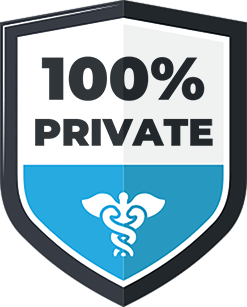The Standard Heart Health Panel is a comprehensive cardiovascular and overall wellness panel designed to identify hidden risk factors that may contribute to heart disease, heart attack, or stroke. Because heart disease often develops silently, this screening helps uncover early warning signs before symptoms appear.
This panel evaluates cholesterol balance, inflammation, metabolic health, kidney and liver function, blood composition, and markers linked to vascular damage. By assessing multiple systems that influence cardiovascular health, it provides a deeper and more complete picture than cholesterol testing alone.
In addition to traditional lipid markers, this screening includes advanced indicators such as high-sensitivity C-reactive protein (hs-CRP) and homocysteine, which can reveal cardiovascular risk even when cholesterol levels appear normal. These markers are increasingly recognized for their role in predicting heart attack and stroke risk.
When performed regularly, the Standard Heart Health Screening supports proactive prevention, early intervention, and personalized care. It empowers individuals and healthcare providers to track trends over time, make informed lifestyle changes, and reduce long-term cardiovascular risk.
What Is Included In This Test?
The Standard Heart Health Screening includes the following key tests:
- Homocysteine:
Measures a marker associated with atherosclerosis, blood clots, and cardiovascular disease.
- High-Sensitivity C-Reactive Protein (hs-CRP):
Detects low-grade inflammation linked to increased heart attack and stroke risk.
- Routine Urinalysis:
Screens for kidney dysfunction, diabetes indicators, and metabolic abnormalities.
- Complete Blood Count (CBC) with Differential:
Assesses red blood cells, white blood cells, platelets, and immune cell distribution.
- Comprehensive Metabolic Panel (CMP):
Evaluates glucose, electrolytes, kidney and liver function, and protein balance, including:
Glucose, Calcium, Albumin, Total Protein, Sodium, Potassium, CO₂, Chloride, BUN, Creatinine, ALP, ALT, AST, Bilirubin, plus calculated ratios.
- Lipid Panel: Total Cholesterol, LDL (“bad”) Cholesterol, HDL (“good”) Cholesterol, Triglycerides
Why Does This Test matter?
Heart disease remains the leading cause of death, yet many people are unaware they are at risk until a major event occurs. This screening identifies subtle changes in inflammation, metabolism, and blood chemistry that contribute to cardiovascular disease long before symptoms arise.
Markers like hs-CRP and homocysteine provide critical insight beyond cholesterol, helping explain cardiovascular risk in individuals with otherwise “normal” lipid levels. These advanced indicators support earlier and more accurate prevention strategies.
Tracking results over time allows for timely intervention, whether through lifestyle changes, nutritional support, or medical care. Even modest improvements in inflammation or cholesterol balance can significantly reduce long-term risk.
This test equips you with actionable information to protect your heart, improve overall health, and make informed decisions backed by comprehensive data.
Who Should Consider This Test?
This screening is ideal for anyone who wants a deeper, more complete assessment of heart health.
You should consider this test if you:
- Want a broad evaluation of cardiovascular risk
- Have a family history of heart disease or stroke
- Have high blood pressure, high cholesterol, or diabetes
- Smoke or are physically inactive
- Are 40 years of age or older
- Have experienced a prior cardiovascular event
- Want advanced insight beyond a basic cholesterol test
Proactive testing helps reduce uncertainty and supports long-term heart health.
Convenient, No-Appointment Testing
To complete your test:
- Order online through our website
- Use the lab locator to find a nearby testing location
- Walk in; no appointment required
- Access your results securely in your HealthLabs.com account within one to three business days
110% Price Guarantee!
If you find the same test for a lower price from a comparable provider, contact us. We not only match the price, we beat it by an additional 10 percent of the difference.













